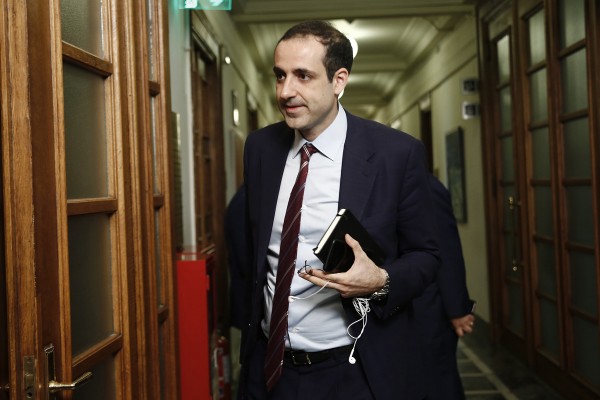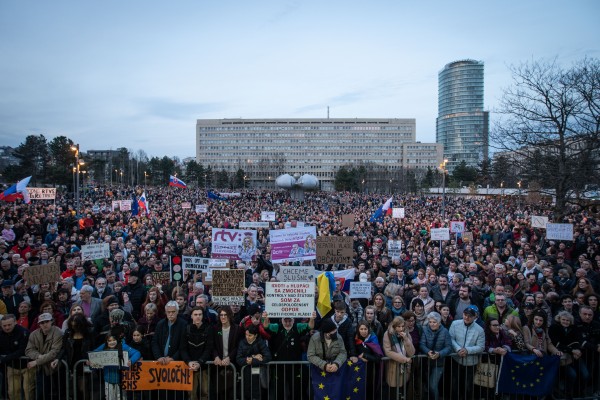About 20 local and foreign journalists were beaten and jailed in Minsk last week by Belarusian authorities after an opposition rally that followed the announcement of President Alexander Lukashenko’s reelection victory, according to estimates from the Belarusian Association of Journalists (BAJ). Most of those arrested are to remain in custody between five and 15 days.
According to reports, in total, more than 600 activists were arrested at the rally. Among those detained and beaten were prominent opposition leaders and presidential candidates – Uladzimir Niakliaeu, Andrei Sannikau and Ryhor Kastusiou. “Legally they’re all going to jail; courts and judges will take care of them. Revolution will not happen,” said President Lukashenko, referring to the opposition as “vandals” and “bandits.” He praised police interventions at his opponents’ manifestation.
The journalists arrested included media from Ukraine, Russia, Germany, France and the United States. The group of journalists was attacked by special forces at about 7 p.m. Sunday, 19 December, in the centre of Minsk, as they were heading towards Kastrychnitskaya Square. Deafened by flash-bang grenades, reporters were forced to lie face-down in the snow.
James Hill, a New York Times photographer, was hit when he tried to show his press card. Police officers seized his equipment and deleted photos and recordings.
Irina Khalip from Russian weekly Novaya Gazeta was hit by the officer as she was being interviewed live by the Moscow-based radio station Ekho Moskvy.
Some of BAJ members were arrested along with opposition supporters during a raid on Uladzimir Niakliayeu’s office. Others – including Aliaksandr Fiaduta, Julia Rymasheuskaya and Sergey Vozniak – were arrested at their homes. Some of them, like Gazeta Wyborcza correspondent Andrzej Poczobut, were released a few hours later without formal charges, but the location of several others, including Vozniak, was unknown as of Tuesday, December 21.
Both the protesters and journalists were tried on Monday, 20 December. Ilya Kuzniatsu, ARD contributor, was sentenced to 15 days in prison, charged with “participating in an illegal demonstration”.
Paris-based Reporters sans Frontières (RSF) lended its support for the statement released by BAJ, condemning the brutality of law-enforcement employees and the fact that the police treated journalists and protesters in the same way. Media work was deliberately obstructed, in spite of the fact that many arrested journalists were granted official accreditations.
“We urge the authorities to publicly condemn the use of violence and to identify and punish those responsible. We finally also deplore the official media’s one-sided coverage of the events of the past few days, which has prevented the public from having an informed view of this key moment in Belarusian political life,” the two organisations said.
“We wholeheartedly condemn the attack and arrest of these reporters. It is unacceptable and a clear violation of press freedom and the people’s right to know,” said IPI Acting Director, Alison Bethel-McKenzie, who echoed the OSCE’s call for the reporters to be released. “We implore Belarusian officials to release all of the journalists immediately.”
Mobile communications, as well as some popular social networks like Twitter and Facebook in Belarus were almost down on election day. Leading opposition websites, such as Charter97.org, Belaruspartisan.org and Gazetaby.com, were experiencing serious technical difficulties. LiveJournal, the most popular blog platform in former Soviet states, also was slowed. According to the website Newswatch.in, many independent and opposition websites were inaccessible as a result of Distributed Denial of Service attacks.
According to the official data, Lukashenko was re-elected to a fourth term with nearly 80 per cent of the vote. Opposition candidates won about 0.5- 2.5 percent.
Information in this report is based on reports in Gazeta Wyborcza, Reuters and Newswatch.in.


